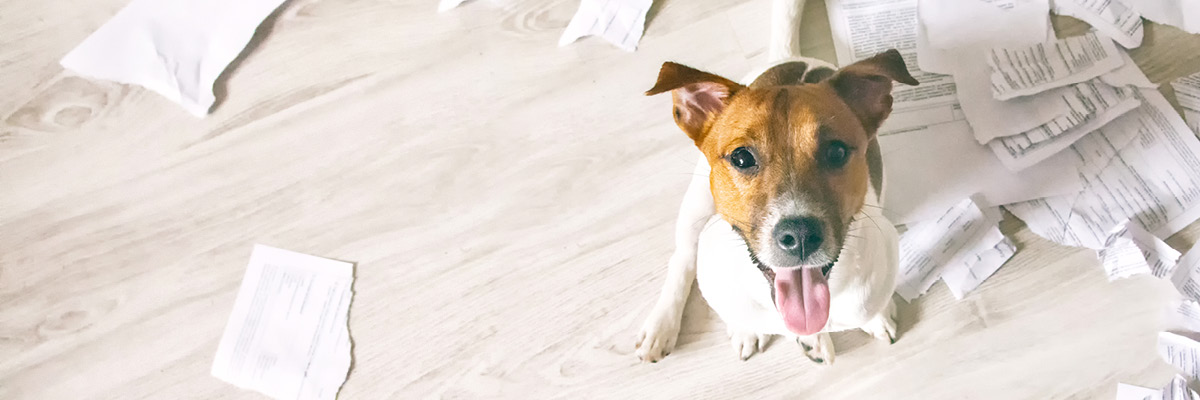Having a dog can bring a lot of joy. Whether that's going out for walks or snuggling up on the sofa, your pet becomes part of your family, and you want them to be happy. However, life often gets in the way making it hard to spend 24 hours a day with your pet, and it can be tricky for them to adjust to you leaving them. Here is everything you need to know on how to stop destructive dog behaviour, whether that's through excessive barking training or rewarding good behaviour.
Will my dog be OK when I go back to work?
Unfortunately, dog separation anxiety can be quite common when dogs are left alone and they're used to having company. Dogs who feel distressed may act out with destructive behaviour or excessive barking. Anxiety in dogs may also manifest through whimpering, whining, howling, jumping up at the door and going to the toilet inside.
How can I stop dog separation anxiety?
Separation anxiety in dogs can cause distress in owners, but luckily there is separation anxiety training that you can do with your dog to help them get used to being home alone.
Gradual desensitisation works to gently help your pet become more accustomed to you leaving.
Firstly, you could train your dog to stay in bed, or in a specific place in the room while you are still in the room but moving around and not with them. Here, your pet should realise that just because they're not by your side, it doesn't mean you've forgotten them. They should still have you in their vision to keep them at ease.
Once your pet has mastered this, try getting your dog to stay put in bed while you leave the room. You can slowly build this up to be out of the room for longer periods of time. When you come back, make sure to reward your dog if they are able to stay put. If they move or react, don't punish or reward them, just go back and start again.
Go slowly
After getting advice from the vet or pet behaviour specialist, the trick is to be patient with your dog and understand that these things take time. Rewards and affection go a long way, and leaving them toys and chews to keep them entertained can work wonders in distracting them while you head out the door.
Whilst seeking advice from a trained specialist is key for identifying and supporting your pet's separation anxiety, we know that there are certain things you can't control. That's why having a good pet insurance policy is key for keeping your furry companions covered should something go wrong.
Cover for behaviour issues is only available on premier policies and cover limits apply.
